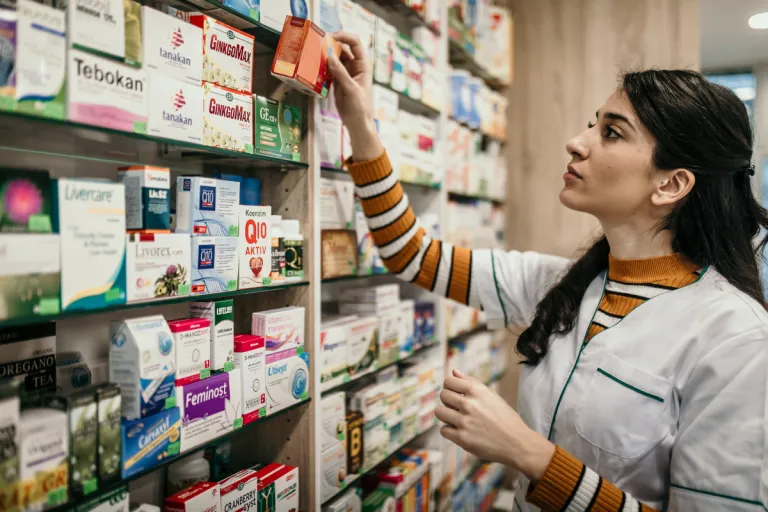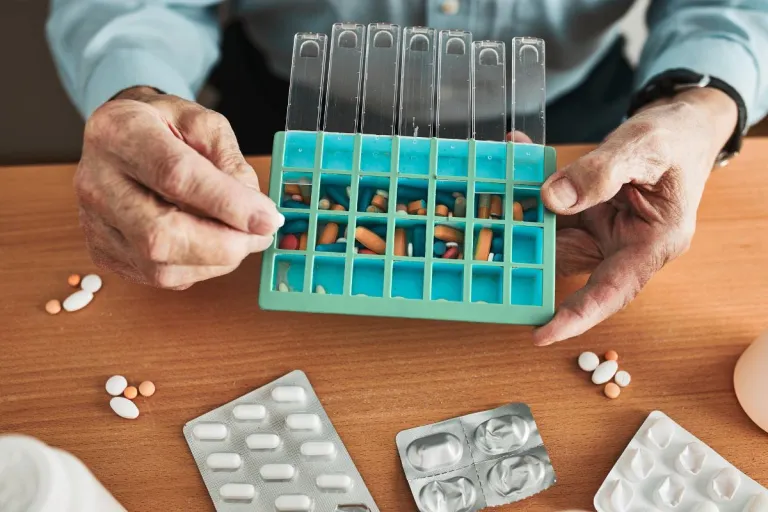It’s located between Peacehaven Campsite and Cradle Rock Genting Highlands, along Jalan Utama Genting Highlands
Common U.S. Medications You Can’t Bring Overseas (Muslim Traveller’s Guide)
When you’re planning an overseas trip, you’re probably focused on booking flights, finding halal food spots, and mapping out nearby mosques. But there’s one travel detail that often gets overlooked: your medication. Surprisingly, some everyday medicines that are perfectly legal in the U.S. (or your home country) can get you into trouble abroad — even if you have a valid prescription. And yes, we’re talking about well-known brands like Sudafed and Benadryl. So, if you’re flying to Japan for cherry blossom season, stopping in the UAE on your way to Umrah, or heading to Indonesia for a halal beach getaway, here’s what you need to know.
Also read: 6 Things You Can’t Bring Into Japan For Muslim Travellers
Common U.S. medications banned or restricted abroad
 Image credit: Handsome Bob | Canva Pro
Image credit: Handsome Bob | Canva Pro
Some medicines that are easy to buy at your local pharmacy may be banned or restricted in other countries. Pseudoephedrine, better known as Sudafed, is a popular decongestant in the U.S. but is banned in Japan and Mexico. Codeine, which is found in certain cough syrups and painkillers, is controlled or outright banned in the UAE, Japan, Greece, and Indonesia — often requiring prior approval or special permits. Diphenhydramine, the active ingredient in Benadryl, is restricted in Japan and Zambia and may require a doctor’s note. ADHD medications like Adderall and Ritalin are classified as controlled substances in countries such as the UAE, Japan, Singapore, and South Korea, and cannot be brought in without proper authorisation and paperwork.
Do your homework before you fly
Travel experts say the biggest mistake travellers make is assuming their medicine will be fine overseas. Every country has its own rules and Muslim-majority destinations are often particularly strict when it comes to controlled substances. If you’re travelling for Hajj, Umrah, or even a halal honeymoon, it’s essential to check your destination’s medication laws on their official embassy website. Only pack what you need for the duration of your trip, and find out in advance how to get refills abroad in case of emergencies.
Fun fact: In Japan, for instance, some medicines are only available after speaking to a pharmacist, so don’t expect the same level of access you might be used to at home.
Keep your meds in original packaging
 Image credit: Przemek Klos | Canva Pro
Image credit: Przemek Klos | Canva Pro
It might be tempting to save space by transferring pills into a weekly organiser, but unlabelled medication can raise suspicion at customs. Always keep your medicine in its original bottle or blister pack, with the label showing your name and dosage clearly. Think of the original packaging as your proof that your medicine is legitimate, particularly in countries where English isn’t widely spoken.
Bring the right documents
 Image credit: kanchankitchamma | Canva Pro
Image credit: kanchankitchamma | Canva Pro
Depending on your destination, you may need more than just your medicine. A written prescription is often required, and in some cases, a doctor’s note explaining your condition will help speed up the process at customs. Certain countries also require an import certificate from their health ministry before you can bring in specific drugs. If your trip involves multiple stops, say, the U.S. to the UAE, then Saudi Arabia, and finally Malaysia, check the medication rules for every single country, even if you’re only in transit.
Know the risks
If you ignore these rules, the consequences can be serious. At best, your medication might be confiscated; at worst, you could face hefty fines or even detention. Always respect local laws after all, you’re a guest in their country and err on the side of caution.
Pro tip: Remember the “Four Ps”
 Image credit: MJ_Prototype | Canva Pro
Image credit: MJ_Prototype | Canva Pro
Travel expert Katy Nastro has a simple way to remember what to do: follow the Four Ps. Keep your medication in its Packaging, make sure your Prescription is clear and legible, get a note from your Provider, and ensure it’s Approved for entry into the country you’re visiting.
Final thought
Travelling should be about exciting new experiences, not stressful encounters with customs officers. Before your next big trip — whether it’s a halal honeymoon in Japan, an Umrah journey via Dubai, or a family holiday in Indonesia — take the time to make sure your medications are allowed. A little preparation now will mean a smoother, stress-free trip later, leaving you to focus on what matters most: discovering new destinations, enjoying halal food adventures, and finding those perfect prayer spots along the way.
Published at
About Author
Aimi Zulkiflee
Subscribe our Newsletter
Get our weekly tips and travel news!
Recommended Articles
Top Muslim-Friendly Things to Do at The Newest Antara Genting Highlands 10 Practical Travel Kits: A Must-Have For Muslim Travellers Save this into your list now ~
10 Real-Life Anime Locations Every Muslim Otaku Fan Must Visit The fact that Japan look like anime in real life, mindblowing!
10 Muslim-Friendly Shopping Districts in Tokyo, Japan Culture, trends, and Halal finds!
12 Culture Shocks You’ll Experience During Umrah Welcome to the land of blessings & calmness ~
Latest Articles
Mt. Fuji’s Iconic Cherry Blossom Festival Canceled for 2026: Essential Updates for Travelers Overtourism and tourists misconduct are the reasons behind this decision.
Seoul’s Majestic Palaces Open Their Gates for Free This Mid-February Plan your budget-friendly trip now!
Best Places to Stay in Kyoto 2026 : 10 Best Ryokan Hotels with Traditional Japanese Style the ultimate way to feel Kyoto’s old-world charm
Taiwan Cherry Blossom Guide 2026: Top 10 Spots, Forecast, & Hot Springs cherry blossom season is back!
The Ultimate Guide to Nakameguro Cherry Blossom Season: Tokyo’s Iconic Pink Wonderland must-visit when you're in Tokyo during sakura season!

